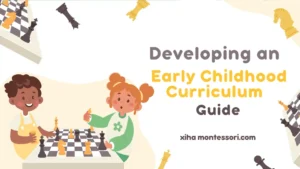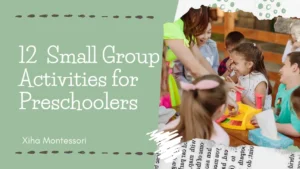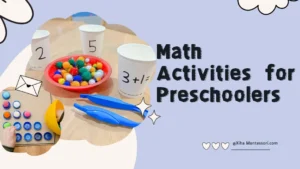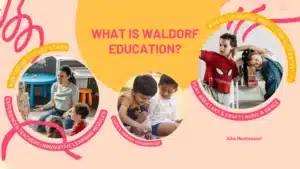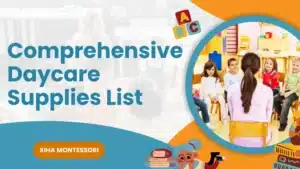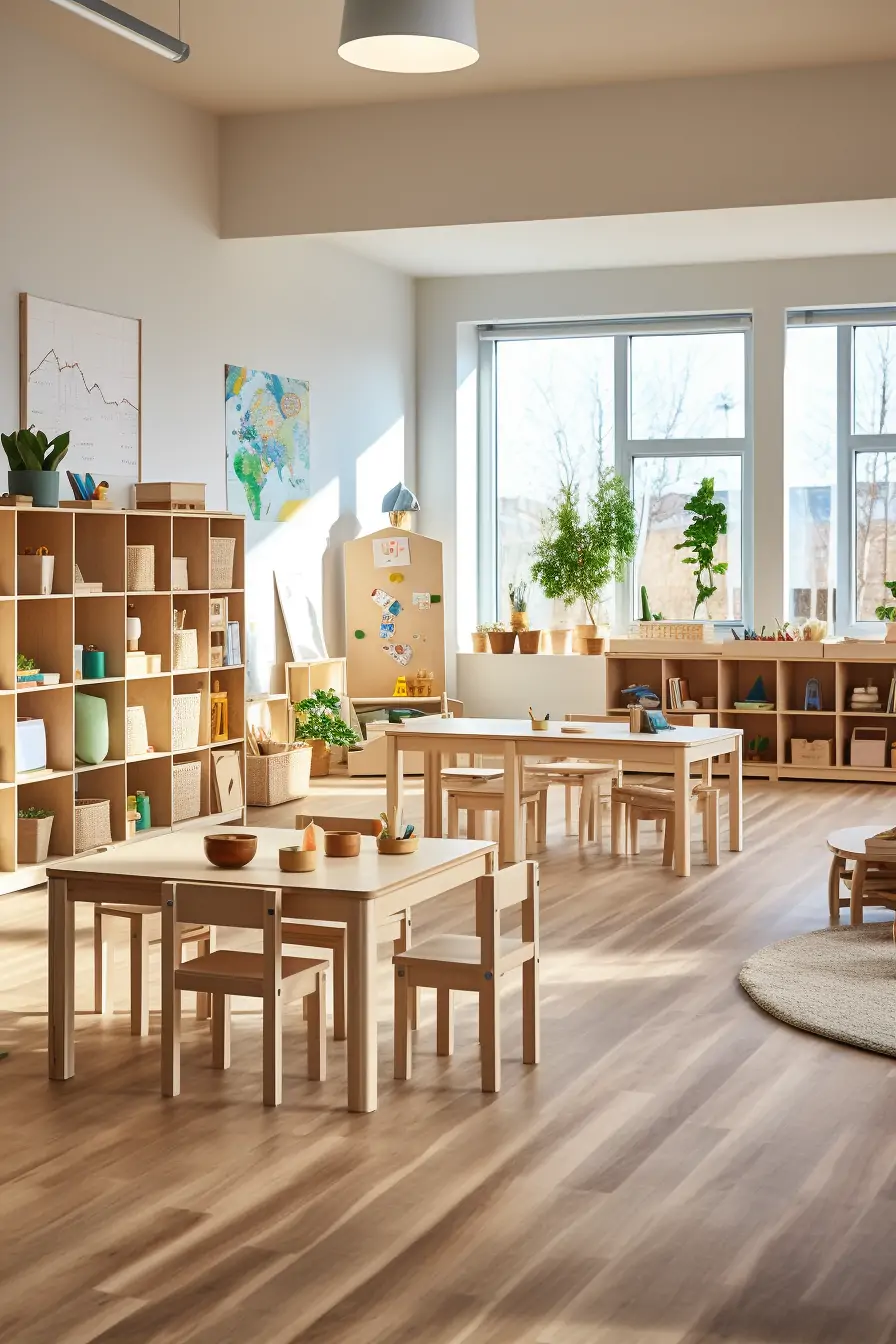Are you confused about the difference between childcare and early learning? Childcare and early learning are two terms that are often used interchangeably, but they actually represent very different concepts.Many parents and guardians have a hard time understanding the difference between these two terms. In this article, we’ll break down the differences and help you make an informed decision about which option is best for your child.
While both involve caring for and educating young children, there are key differences between the two.Childcare usually refers to care provided to a child at a specific time, usually when parents are working or otherwise unavailable.Early learning focuses on providing structured educational programs that develop children’s cognitive, social, and emotional skills during the critical early years.
By understanding the difference between childcare and early learning, you can choose the option that best meets your child’s needs and expectations. So, let’s dive into this topic together!
What is Early Learning?
Early learning refers to the structured educational programs targeting children from birth to age five. These programs are designed to foster cognitive, social, emotional, and physical development through play-based learning, storytelling, and other interactive activities.
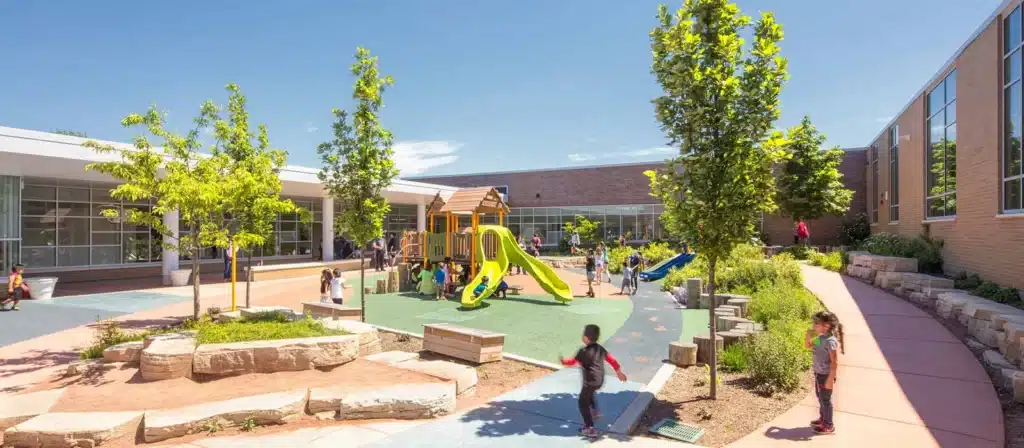
The Importance of Early Learning
Research consistently shows that the brain’s most rapid period of development occurs in the early years. Early learning settings, such as preschools and kindergartens, provide a structured environment where children can explore, discover, and learn about the world around them. These experiences are crucial for developing critical thinking, problem-solving skills, and a love of learning.
Curriculum and Activities in Early Learning
Early learning programs often follow a curriculum that includes language and literacy, math, science, art, and physical activities. These curricula are designed to be age-appropriate and cater to the developmental stages of young children, emphasizing learning through play, which is considered the most effective way for young children to learn and develop new skills.
What is Childcare?
Childcare, often considered a more traditional form of care, focuses on providing a safe and nurturing environment for children while their parents or guardians are engaged in work or other commitments. The primary goal of childcare is to ensure the physical well-being and safety of children, with a secondary focus on play and socialization.
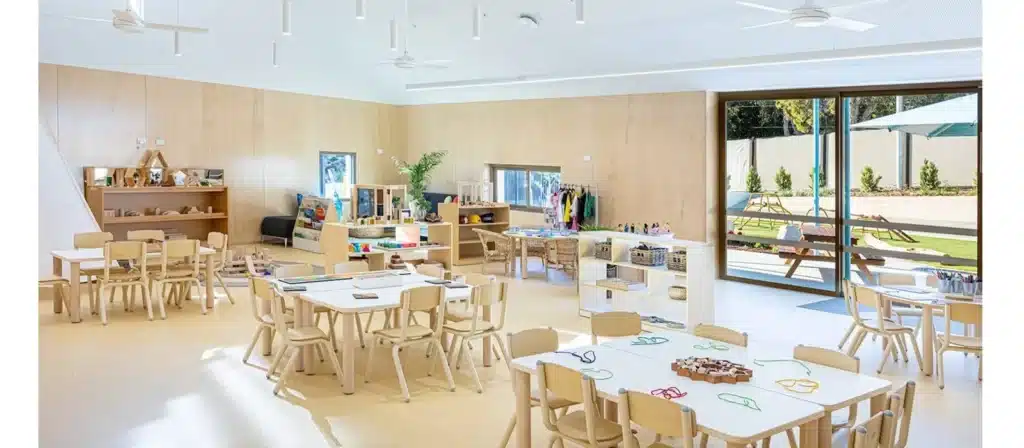
Childcare settings vary widely, from home-based daycare to larger, center-based facilities. These environments offer care for children of various ages, from infants to school-aged children. The services provided in these settings include feeding, resting, playtime, and basic educational activities.
What is Preschool and Kindergarten?
Preschool and kindergarten are structured early learning environments designed for children before they enter compulsory education. While both aim to prepare children for future academic success, there are distinct differences in their focus, age groups, and educational goals.
Preschool: A Focus on Social and Emotional Development
Preschools cater to children from about two to five years old, emphasizing social and emotional development alongside basic academic skills. Preschool programs provide a foundation for learning in a less structured environment than kindergarten, allowing children to explore and learn at their own pace.
Kindergarten: Preparing for Primary School
Kindergarten serves as a bridge between preschool and the more formal learning environment of primary school. Targeting children around five years old, kindergarten focuses on foundational academic skills, such as reading, writing, and mathematics, in a more structured setting.
Key Differences Between Childcare and Early Learning?
Childcare and early learning centers are two basic options for parents, but they differ greatly in purpose and approach. The main differences between childcare centers and early learning centers are listed below:
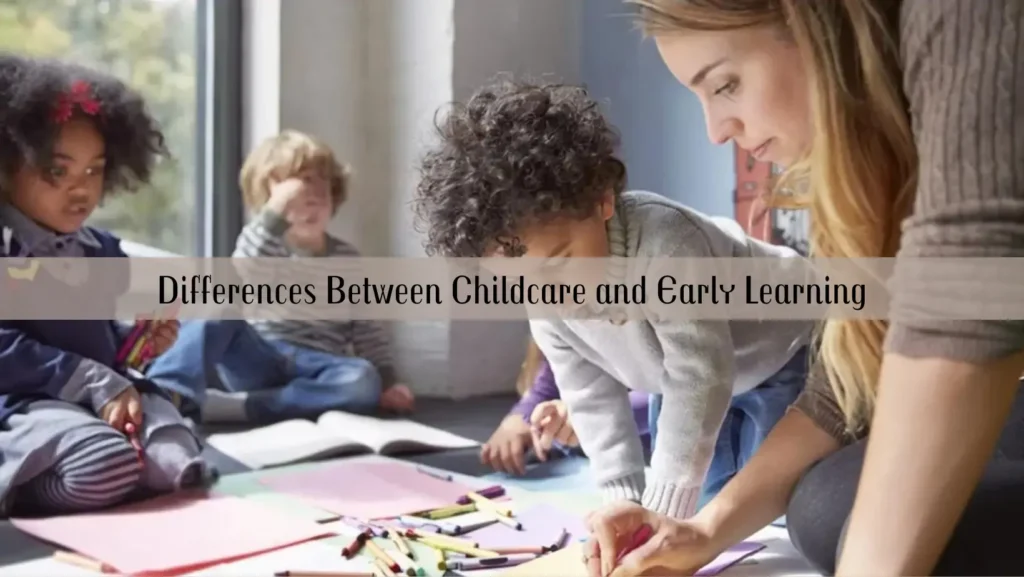
Childcare Centers
- Creates a secure setting where children can receive care when their parents are unavailable.
- Aims to fulfill the fundamental needs of children.
- Provides a selection of basic learning activities.
- Offers care options outside regular hours and long-duration care to suit the schedules of parents.
Early Learning Centers
- Aims to enhance children’s cognitive, social, and emotional growth.
- Prioritizes educational experiences that promote learning through interactive play and discovery.
- Tailors programs to cater to the individual preferences and requirements of each child.
- Generally operates for five days each week, with a daily duration of six hours.
Pros and Cons of Childcare Centers
Pros
- Flexibility: Ideal for parents with unpredictable or traditional work hours, offering extended care options.
- Socialization: Children develop social skills through interaction with peers in a diverse age group.
- Safety and Care: Emphasis on providing a secure and nurturing environment that caters to the basic care needs of children.
Cons
- Less Focus on Education: While some learning activities are provided, the curriculum is not as structured or comprehensive as in early learning centers.
- Larger Groups: Often, childcare centers have higher child-to-teacher ratios, which might limit individual attention.
Pros and Cons of Early Learning Centers
Pros
- Structured Curriculum: Focuses on educational and developmental milestones, preparing children for school.
- Educational Philosophy: Incorporation of renowned educational frameworks that support holistic child development.
- Smaller Class Sizes: Typically feature lower child-to-teacher ratios, allowing for more personalized instruction.
Cons
- Cost: Tend to be more expensive than childcare centers due to the specialized curriculum and lower ratios.
- Less Flexibility: Operating hours might be more restrictive, aligning closely with traditional school hours.
The Role of Caregivers in Childcare
Caregivers are the backbone of childcare settings, providing the care, supervision, and nurturing that children need in their early years. They create a safe environment where children can play and rest, ensuring their basic needs are met while their parents are away.

Building Trust and Security
The relationship between caregivers and children is based on trust and security. Caregivers are skilled in offering emotional support, helping children develop a sense of security and belonging. This emotional foundation is crucial for young children’s overall development and well-being.
Supporting Early Development
While their primary focus is on care and safety, caregivers also play a significant role in the early development of children. Through interactive play and basic educational activities, they support the social, emotional, and cognitive development of the children in their care.
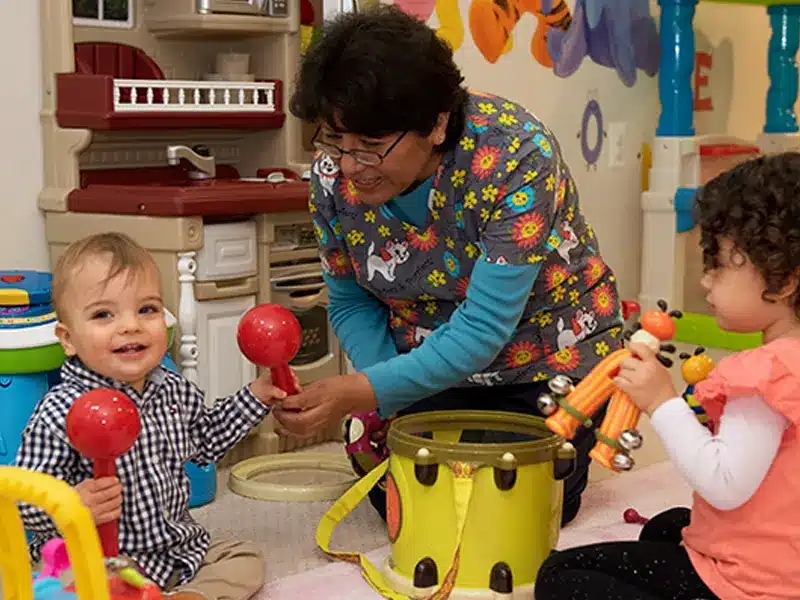
The Role of Educators in Early Learning
Educators in early learning settings are more than teachers; they are facilitators of learning, creators of stimulating environments, and supporters of exploration and discovery. Their role is multifaceted, impacting various aspects of a child’s development.
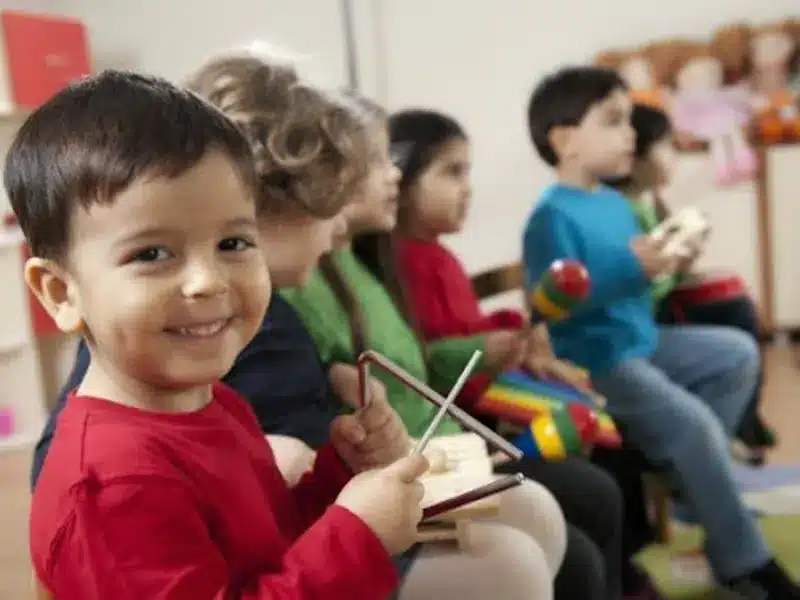
Academic and Social Skills
Early learning educators are adept at weaving academic learning with social skill development. They create a classroom dynamic that encourages children to learn from each other, work together on projects.
Structured Yet Flexible Approach
A structured yet flexible approach allows educators to adapt their teaching methods to the individual needs of each child. This adaptability ensures that all children, regardless of their learning pace or style, receive the support and encouragement they need to thrive.
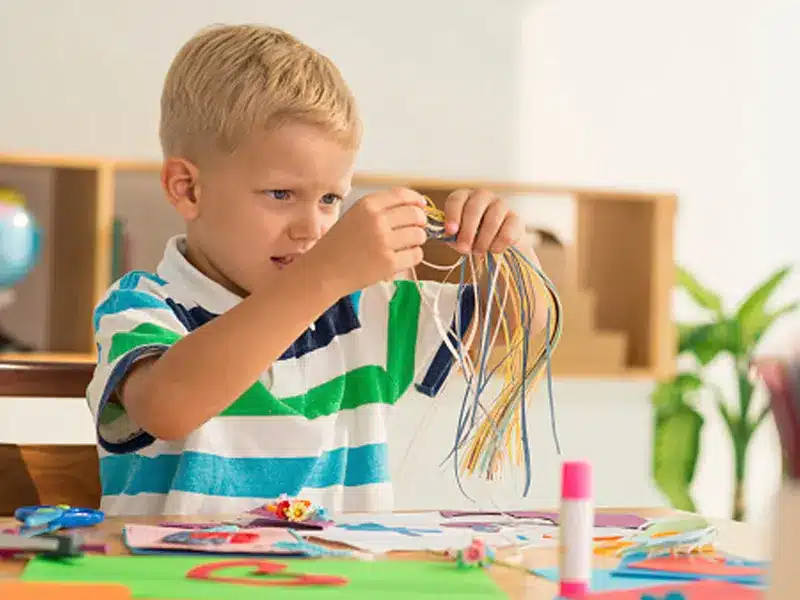
How to Choose the Right Type of Care for Your Child?
Choosing the right care for your child involves balancing various factors, including your child’s developmental needs, your family’s routine, and your educational aspirations for your child. Understanding the spectrum of care available is the first step toward making an informed choice.
1.Assessing Your Child’s Needs
Each child has his or her own needs, interests and rate of development. Some children may thrive in the structured educational environment provided by an early learning center, while others may benefit more from the flexible, nurturing atmosphere of a child care facility.
2.Considering Family Logistics
Your family’s schedule, work commitments, and lifestyle play a significant role in determining the right type of care. For parents with traditional 9-to-5 jobs, a daycare with extended hours might be essential. Alternatively, families might prioritize a facility closer to home or work to ease the logistics of drop-offs and pick-ups.
3.Educational Goals and Values
Do you prioritize play-based learning, language acquisition, socialization, or preparation for formal schooling? Different settings offer various approaches to early learning, from Montessori and Reggio Emilia to traditional preschool programs.
4.Budget for School
Budgetary cost is an important consideration when choosing a type of care, and typically early learning centers tend to be more expensive in comparison.
5.Location
Considering proximity to home or work may be a factor when choosing a child care center or early learning center.
Common Types of Childcare Facilities
Understanding the landscape of childcare options can help parents make choices that feel right for their child and family situation. Here’s a rundown of the most common types of facilities:
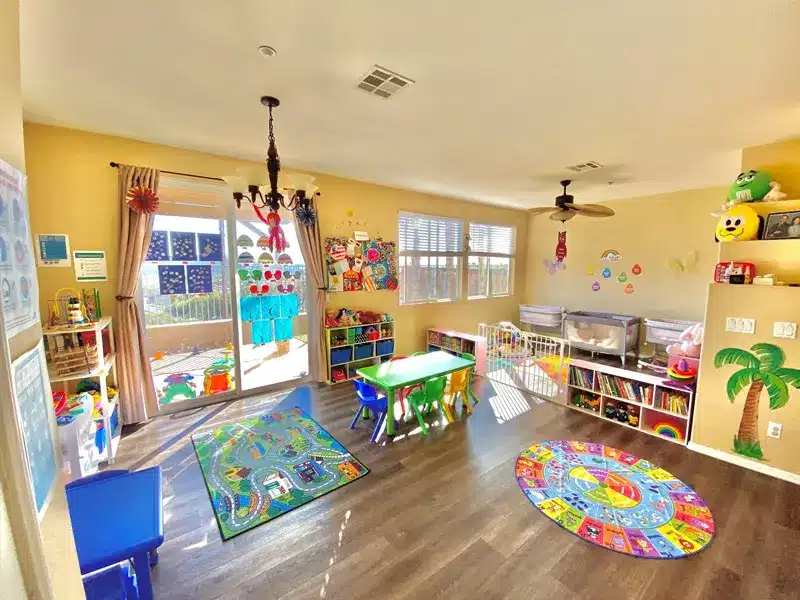
Home Daycare
Home daycares operate out of the caregiver’s home, offering a more personal, home-like environment. They typically have fewer children, allowing for more individualized attention but may have less structured educational programming.
Daycare Centers
Daycare centers are facility-based programs that can accommodate more children. These centers often have a more structured day with set times for meals, naps, and educational activities. They are usually licensed and regulated, providing parents with peace of mind regarding safety and care standards.
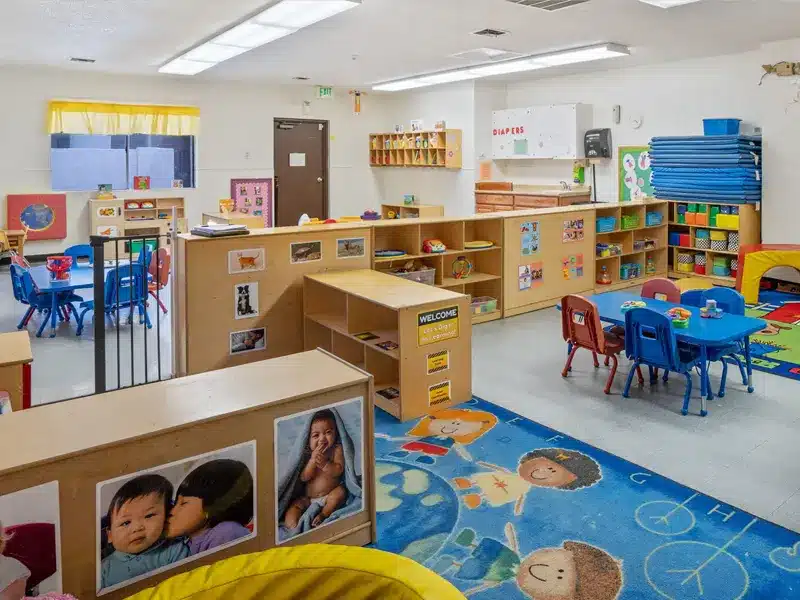
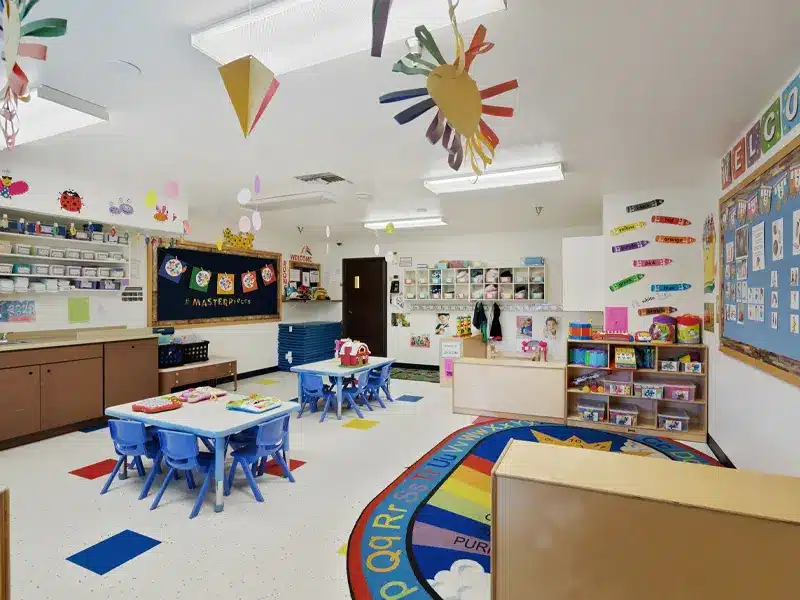
Preschools
Preschools are geared towards early learning, with a focus on preparing children for kindergarten. They offer a curriculum that includes basic academics along with social, physical, and emotional development. Preschools can operate within private facilities, schools, or community centers.
Family Group Daycare
Family group daycares are a hybrid between home daycares and larger centers. They operate out of a residential home but are staffed by multiple caregivers. This option can offer the benefits of a home-like environment with the resources and structure of a larger program.

Find Quality Childcare and Early Learning Centers
Identifying a high-quality childcare or early learning center is crucial for your child’s well-being and development. Here are key factors to consider:
- Staff Qualifications and Ratios
The qualifications of the staff, including their education and training in early childhood development, are critical. Additionally, lower child-to-staff ratios ensure more personalized attention and care for each child. - Environment and Facilities
The physical environment should be safe, clean, and welcoming, with age-appropriate toys and resources. Outdoor play areas and well-organized classrooms enhance the learning experience. - Curriculum and Educational Philosophy
High-quality centers have a clear educational philosophy and curriculum that promote learning through play, exploration, and structured activities. Look for programs that align with your educational values and goals for your child. - Parent Involvement and Communication
Open communication between parents and caregivers is essential. Look for facilities that encourage parental involvement and offer regular updates on your child’s progress and day-to-day activities.
Common Misconceptions about Childcare and Early Learning
Dispelling common myths can help parents approach childcare and early learning choices with confidence:
Misconception 1: “Childcare is just babysitting.”
Many still view childcare as mere babysitting, overlooking the rich learning and development that occurs in these settings. Quality childcare provides structured activities, socialization opportunities, and early learning experiences.
Misconception 2: “Preschool is unnecessary for academic success.”
Research shows that high-quality preschool programs can have a lasting impact on a child’s academic and social success, disproving the idea that preschool is an optional add-on rather than a foundational educational experience.
Misconception 3: “The best childcare is the most expensive one.”
While cost can be an indicator of quality, the best childcare or early learning center is the one that aligns with your child’s needs and your family’s values. There are many affordable options that provide excellent care and education.
Conclusion
The distinction between childcare and early learning is nuanced, reflecting the diverse needs of children at different stages of their development. As the CEO of Xiha Montessori, I understand the importance of providing environments that cater to both the care and educational needs of children. Through our top-quality preschool and daycare furniture, we aim to support caregivers and educators in creating spaces that foster both safety and learning. Understanding these differences helps parents make informed decisions, ensuring their children receive the best start in life.



